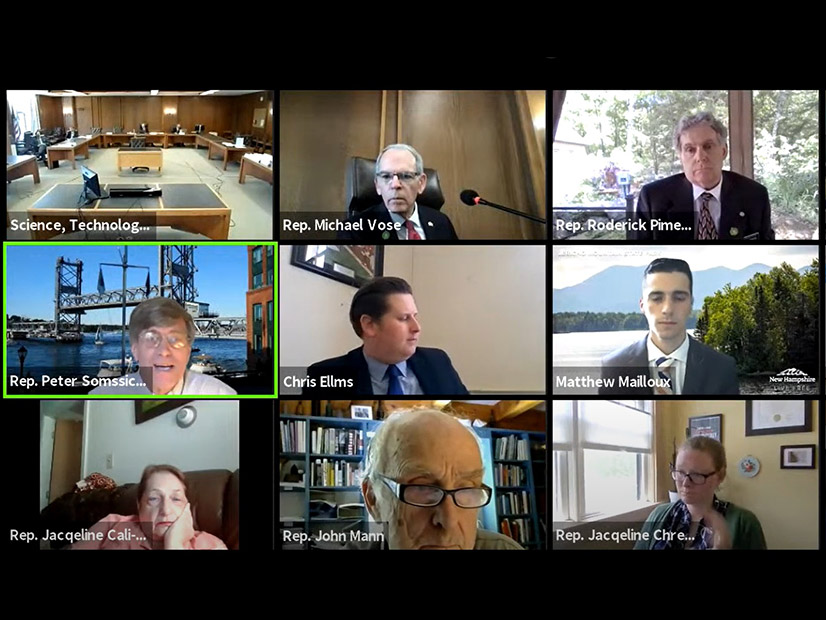A reorganization of New Hampshire’s government that would create a new Department of Energy is on the verge of being approved through the state’s budget process.
The proposal, which is included in a budget trailer bill (HB 2), takes the energy functions of the Office of Strategic Initiatives (OSI) and regulatory functions of the Public Utilities Commission and restructures them under the DOE.
“We see this as an opportunity to reach better outcomes, whether it be for ratepayers or even just to give energy policies a singular home in the state of New Hampshire,” State Budget Director Matthew Mailloux told the Science, Technology and Energy Committee in a presentation last week. The DOE would be the state’s “single entity for energy policy decision making.”

In April, the House of Representatives passed the trailer bill that contains the DOE proposal. And while the Senate Finance Committee is still working through the full budget, it approved the proposal in a 6-1 vote in mid-May. The legislature is scheduled to adjourn June 30.
Four divisions would be formed under DOE, to include Administration, Policy and Programs, Enforcement, and Regulatory Support. OSI would be dissolved and reorganized partially under the Policy and Programs division. In addition, the existing electric division and gas and water division of the PUC would align under the Regulatory Support division. The commission itself would be administratively attached to DOE.
Restructuring the PUC, according to Mailloux, addresses a “perceived conflict of interest” in the dual roles of commission staff.
Under the current commission structure, staff can be a party to a docket to help build the evidentiary record and present evidence before the commission, while also advising the commission on how it should rule.
“What we’re hoping to do by creating a new Department of Energy is establish a bright red line,” Mailloux said. “Essentially, you either work as an adviser to the commissioners and help them rule on a given docket … or you work for the department, represent the interests of the state and make your case in the hearing room, but never behind closed doors.”
In addition, the proposal adds accountability, he said, by transitioning all leadership positions that move to the DOE to a formal confirmation process with four-year terms. The commission chair will continue to have a six-year term.
The budget also funds for the first time an Office for Offshore Wind Industry Development, which would be located under the Policy and Programs division.
Sen. David Watters (D) sees the Finance Committee’s approval as a win for the work currently underway by the state’s Commission to Study Offshore Wind and Port Development.
“I’m sure it’s going to take some time to get [the office] set up, [but the proposal] will pass with the budget when the budget passes,” Watters told the offshore commission at its monthly meeting Tuesday.
The Office of Offshore Wind Industry Development would support the state’s membership on the Bureau of Ocean Energy Management’s Intergovernmental Renewable Energy Task Force and the offshore commission as it develops industry strategies.



